Adult Track: Emma Parrish, MS | Autism and Developmental Disabilities Track: Michal Cook, MS | Behavioral Medicine: Tanya Smit, MA | Child Track: Angelina Pei-Tzu Tsai, MS, MA | Rehabilitation Neuropsychology Track: Humza Khan, MS
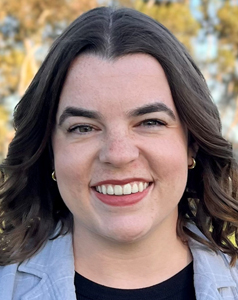 |
Emma Parrish, MSWhy UW Psychology Internship?I was interested in the General Adult Track at UW because of the unique clinical training and research opportunities that would allow me to sharpen and hone my skills as a scientist practitioner. My clinical interests lie in working with individuals with serious mental illness, complex comorbidities, suicidal ideation, and acute psychiatric symptoms, and I am eager to further my expertise in working with this population in a variety of treatment settings. |
| The commitment to strong generalist training in the general adult track, as well as outstanding clinical services for people with serious mental illness, are a great match for my interests. Through my rotation at the Harborview Outpatient Psychiatry/Psychology 5 East Clinic I can develop and strengthen skills in CBT for psychosis, as well as other evidence-based approaches in working with individuals with serious mental illness. Additionally, I deliver inpatient group and brief individual CBT for psychosis at Harborview, allowing me to generalize my skills from an outpatient to an inpatient setting.
My rotation through the UW Outpatient Psychiatry Clinic provides me with outstanding training in Dialectical Behavioral Therapy (DBT), another excellent match for my clinical training goals. UW is also an excellent fit for my research interests. My research interests lie at the intersection of suicide prevention interventions, serious mental illness, and digital mental health, and I have a growing interest in implementation science. The protected research time allows me to develop research collaborations with faculty members in the department who are leaders in the implementation of cognitive behavioral therapy for psychosis and digital mental health interventions. Education
Clinical Rotations
Career GoalsMy career goal is to pursue a career as a clinician scientist at an academic medical center where I can combine research and clinical work. My research interests lie in utilizing mobile technologies to study the underlying psychological mechanisms of suicide in people with serious mental illness, including developing and delivering new suicide prevention interventions for this population. Clinically, I aim to deliver cognitive behavioral therapy for psychosis and other evidence-based treatments for people with serious mental illness. I hope to mentor and clinically supervise trainees later in my career as well. Throughout my career, I hope to amplify the voices of individuals who experience psychosis through advocacy for increased access to evidence-based psychological treatments for psychosis. Follow me for a week!Sunday
Monday (OPC-DBT)
Tuesday (OPC + Harborview 5EC)
Wednesday (Harborview 5EC)
Thursday (Harborview 5EC + Didactics)
Friday (Research + Harborview 5EC)
Saturday
|
|
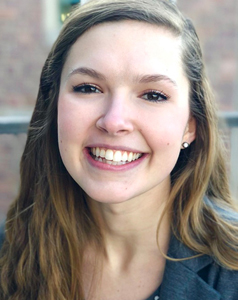 |
Michal Cook, MSw, MAWhy UW Psychology Internship?I was drawn to the UW Psychology Internship for its unique combination of breadth and depth within autism-focused clinical work and research. Here, you can explore multiple assessment clinics (e.g., Child Development Clinic, Cardiac Neurodevelopment Clinic, Gender Clinic) and intervention modalities with caregivers (e.g., RUBI), groups (e.g., Facing Your Fears), kids and adolescents (e.g., Mood and Anxiety Program, Gender Clinic), and toddlers (e.g., Early Intervention) within both outpatient (e.g., IHDD, Seattle Children’s Magnuson) and inpatient settings (e.g., PBMU). For me, this provided the ideal balance of continuing to do what I love while also challenging myself to grow in new areas and skills. |
Additionally, the 4 hours per week of protected research time has been essential for my productivity as I wrap up my dissertation and look towards opportunities to work with new research mentors on additional projects. Overall, the balance of clinical and research efforts, the presence of supportive supervisors, and the undeniably beautiful landscape of Seattle (& work-life-balance encouraged to explore it!) made UW a clear standout.
Education
Clinical Rotations
Career GoalsMoving forward, my goal is to balance both research and clinical work reciprocally in an academic medical center or children’s hospital setting. I hope to continue providing autism diagnostic and therapeutic services, while also developing community-based programs for autistic individuals and their families across the lifespan through community-partnered research efforts. Follow me for a week!Sunday
Monday (Institute on Human Development and Disability)
Tuesday (Seattle Children’s Magnuson)
Wednesday (Seattle Children’s Magnuson)
Thursday (Remote/UWMC)
Friday (Seattle Children’s Magnuson)
Saturday
|
|
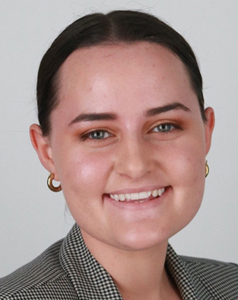 |
Tanya Smit, MAWhy UW Psychology Internship?I was drawn to the UW Psychology Internship’s emphasis on diversity, availability of experiences in integrated medical settings, and emphasis on both clinical and research training within the scientist-practitioner model. In terms of clinical opportunities, I was excited to train at Harborview Medical Center (HMC), a Level 1 Trauma Center serving the 5-state WWAMI region with a mission to provide care to underserved populations. |
| Training at HMC within the BMed track includes focused opportunities to work with individuals with a wide array of rehabilitation diagnoses (e.g., SCI, TBI, stroke, chronic pain), both in acute inpatient settings and the post-acute outpatient setting through the Comprehensive Outpatient Rehabilitation Program (CORP).
While internship year is a clinical year, I was also excited by UW’s commitment to supporting residents with their research endeavors by having protected research time, offering a Grant Writing seminar, and connecting residents to a research mentor. The UW faculty have been very supportive in providing research opportunities. Also, on a personal note, Seattle is a fun place to live, with such easy access to the outdoors! Education
Clinical Rotations
Career GoalsMy goal is to continue working towards improving physical and mental health outcomes among rehabilitation populations (e.g., spinal cord injury, brain injury, MS) as a clinical researcher at an academic medical center. Specifically, I aim to extend past research to historically minoritized and underserved groups within an implementation science framework. While research is where my passion lies, I hope to also continue doing clinical work to some capacity as a Rehabilitation Psychologist, as this work has been incredibly rewarding. Follow me for a week!Sunday
Monday
Tuesday
Wednesday
Thursday
Friday
Saturday
Evening: try a new recipe and have a night in |
|
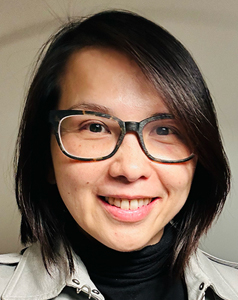 |
Angelina Pei-Tzu Tsai, MSc, MAWhy UW Psychology Internship?The UW internship is the ideal fit for me, not just for its clinical and research opportunities but because of the people who make it special. I’m excited about working with trauma-exposed youth across diverse populations and complex presentations, which aligns with my passion for understanding how adversity and culture shape neurodevelopment. |
| The child track’s focus on family-based interventions, neuropsychological assessments, and interdisciplinary collaboration supports my commitment to holistic care. Training opportunity in comprehensive full-model DBT program is particularly appealing given my focus on complex presentations in trauma-exposed adolescents/young adults.
I’m also eager to provide behavioral health services in other languages. UW/SCH sponsored language validation testing to facilitate this care, which for me reflects UW/SCH’s dedication to cultural inclusion. The program’s research opportunities, including mentorship and dedicated time, also align with my goals for growth as a clinician and a scientist. The supportive community and visionary leadership at UW/SCH truly set it apart. I’m inspired by how the faculty tailors training to each trainee’s goals – it shows a level of care that makes me feel I’ve found my professional home. And Seattle! The cultural diversity, food scenes and gorgeous landscapes are additional draw. The UW/SCH internship offers an optimal environment for both professional and personal growth, making it my top choice for this crucial stage in my career. Education
Clinical Rotations
Career GoalsI aim to pursue a career at an academic medical center or academic health setting, where I can integrate clinical care with research, particularly focused on complex emotion dysregulation in underserved populations. My Clinical PhD program provided a strong foundation for treating the impact of trauma on neurodevelopmental trajectories, while my Quantitative sub-specialty enhances this by improving measurement precision to guide tailored interventions. My long-standing commitment to research involves studying the risk mechanisms of adversity underlying transdiagnostic outcomes and refining the precision of trauma measurement, ultimately leading to more tailored and culturally responsive interventions. My passion is to deliver care that halts the progression of trauma from childhood to adulthood, especially within culturally diverse and underserved communities. Follow me for a week!Sunday
Monday (SNACS + MAP)
Tuesday (MAP + BAM)
Wednesday (DBT)
Thursday (Research + Didactics)
Friday (SNACS)
Saturday
|
|
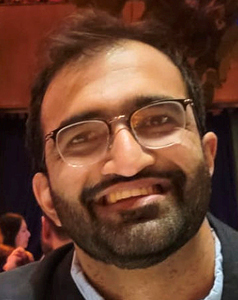 |
Humza Khan, MSWhy UW Psychology Internship?I chose the UW Psychology Internship due to the availability of world-renown rehabilitation services; the opportunity receive training across two clinical sites in academic medicine (i.e., University of Washington Medical Center-Montlake campus and Harborview Medical Center) and the opportunity to deliver neuropsychological care across inpatient and outpatient settings. Furthermore, the internship’s strong commitment to research, career development and helping individuals grow as people through genuine investment solidified my decision to pursue my internship here. |
Education
Clinical Rotations
Career GoalsMy career plans are to ultimately pursue dual board certification in rehabilitation psychology and neuropsychology within a traditional healthcare delivery model (e.g., rehabilitation center, academic hospital). I aim to split my clinical and research time (70/30) and hope to pursue projects examining cross-cultural neuropsychological outcomes within demyelinating disorders (e.g., Multiple sclerosis, Guillain-Barre syndrome), performance validity testing and language mapping in non-English Epilepsy populations. In addition, I aim to pursue international opportunities to help provide neuropsychological care in countries such as Pakistan, as a way to help fight mental health stigma and provide much needed care. Follow me for a week!Sunday
Monday
Tuesday
Wednesday
Thursday
Friday
Saturday
|
|